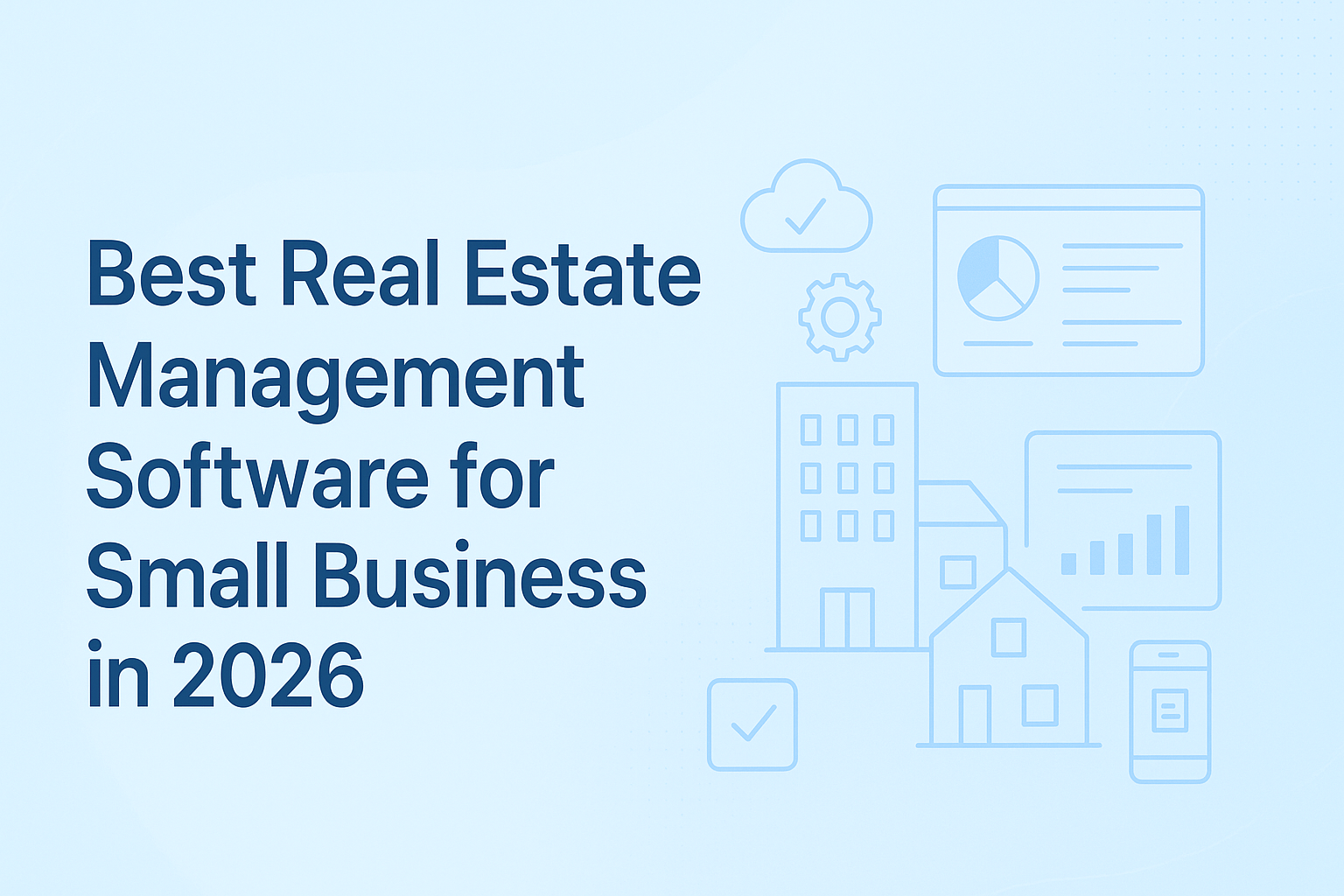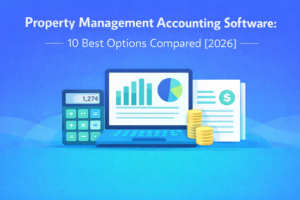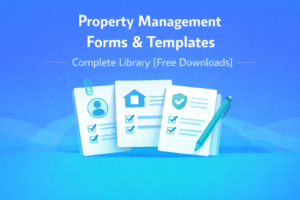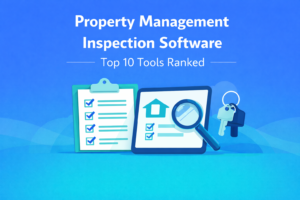
If you ever missed a rent check, lost a lease form, or rushed to arrange an emergency fix, you already understand how stressful property management can be. For small business owners, landlords, and property managers, manual efforts devour precious time that could be spent to expand your portfolio or work on tenant satisfaction. That’s why 2026 is the year of smart property management.
Modern real estate management software not only enables you to “manage”, but it also automates, links, and analyzes all aspects of your real estate business. If you have 10 units or 200, the correct software enables you to operate your company like a large enterprise.
Key Takeaways
- The top real estate management software for small companies in 2026 integrates automation, analytics, and ease of use.
- Propertese provides an integrated cloud platform that includes property, investment, and leasing management.
- The future of property tech lies in AI, ERP integration, and voice-friendly dashboards.
What Is Real Estate Management Software?
Real estate management software (also referred to as property management software) is an all-in-one solution that allows you to manage:
- Tenant management – lease tracking, renewals, and tenant history
- Accounting & finances – rent invoices generation, expense management, and integration with accounting systems
- Maintenance operations – receive and assign service requests
- Communication – talk with tenants or suppliers in real-time within the platform
- Analytics & reporting – track cash flow, occupancy, and profitability
As per the National Association of Realtors (NAR), property managers employing automation software save 25–40% of monthly operational time on average. The most effective tools serve as a digital backbone for your real estate company, integrate finance, field operations, lease, and client relationships into a single workflow.
Why Every Small Real Estate Business Needs Management Software
Small businesses often start with spreadsheets and emails, and that works for a while. But as soon as you have more than a handful of tenants or multiple properties, things quickly become unmanageable. Imagine this scenario: You’re managing 15 units across two buildings. One tenant complains about a plumbing issue, another requests a lease renewal, and meanwhile, your accountant is waiting for rent receipts. If this sounds familiar, it’s time for automation.
Here’s why property management software is a game-changer:
1. Saves Time and Reduces Errors
Automation handles reminders, billing, and receipts with no manual entry. That means no invoices missed and no follow-ups delayed.
2. Centralizes All Property Data
Your leases, maintenance records, and financial information all live in one cloud-based repository and are easily found anytime, anywhere.
3. Improves Tenant Satisfaction
Tenants are able to log maintenance requests, pay rent online, and contact you directly through portals, giving them a professional and responsive experience.
4. Increases Financial Visibility
All of the tools give you real-time dashboards for income, expenses, and performance metrics and allow you to make informed investment decisions.
5. Scales with Your Portfolio
As you grow your portfolio, your system can manage more units without requiring more admin assistance.
What to Look for in Real Estate Management Software
Don’t select a solution until you test it against what really matters for your business objectives.
| Criteria | Why It Matters | What to Check |
| Ease of Setup | Saves time for small teams | Intuitive interface, minimal training |
| Cloud-Based Access | Manage from anywhere | Supports mobile devices |
| Automation Capabilities | Reduces human effort | Rent reminders, maintenance workflows |
| Customization | Every property is unique | Editable templates, flexible permissions |
| Integrations | Connects your ecosystem | Works with QuickBooks, NetSuite, Xero |
| Pricing Transparency | Avoid hidden costs | Per-unit or flat-rate clarity |
| Scalability | Future-proof investment | Handles more units as you grow |
Best Real Estate Management Software for Small Business in 2026
The following are the platforms that are making waves for small property enterprises this year, from startups to experienced landlords.
1. Propertese
Website:
Overview:
Propertese is an end-to-end real estate ecosystem. Designed for property owners, asset managers, and investment companies, it combines property operations, finance, and communications in one robust system.
Unique Advantage:
In contrast to the more traditional tools that concentrate on rentals or leases alone, Propertese brings together investment management, property operations, and tenant relations into a single comprehensive interface.
Key Features:
- Property and Unit Management
- Investment Management
- Leasing and Rental Management
- Subsidiary Management
- Maintenance Request Management
- Localization
- Contract Management
- Reporting
- Access Management
- Community Association Management
- Document Management
- Email Communication
- Online rent payments & collections
- Leads, Rental Applications & Applicants Management
- Short Term Rentals
- Common Area Maintenance
- Approval Workflow
Integration Excellence:
Propertese connects seamlessly with Oracle NetSuite, which makes it well-suited for real estate firms that want to grow with robust financial visibility.
Why Small Businesses Choose It:
For a small property business or a family-owned real estate company, Propertese does away with multiple systems (such as Buildium + QuickBooks + CRM). It’s literally one login for your whole operation.
Best For:
Firms operating 10–500 units, investment companies, or landlords growing into multi-property management.
2. Buildium
Website:
Overview:
Buildium has been a popular choice for small property managers for a long time. Built by industry experts, it deals with everything from tenant signing up to owner statements with unbelievable ease.
Top Features:
- Tenant & lease management
- Online rent collections
- Late fees automatically
- Accounting dashboard with bank reconciliation
- Maintenance ticketing
- Resident & owner portals
- eLeases and document storage
Why It Works for Small Businesses:
Buildium’s learning curve is low. You can take yourself from sign-up to your first automated rent cycle in under an hour.
3. AppFolio Property Manager
Website:
Overview:
AppFolio dominates the market in AI-driven automation. It’s designed for property managers working with multifaceted portfolios, with features driven by AI and predictive analytics.
Key Highlights:
- AI Leasing Assistant “Lisa” to interact with prospects
- Work order management & vendor tracking
- Integrated accounting
- Smart rent pricing recommendations based on market data
- Mobile inspection and maintenance app
- Owner and resident dashboards
Best For:
Tech-minded managers who desire sophisticated automation for communication, scheduling, and reporting.
Example Use Case:
A small real estate brokerage handling 75 apartments automates 90% of leasing emails and halves inquiry response time from hours to seconds using AppFolio’s “Lisa” assistant.
4. Re-Leased
Website:
Overview:
Re-Leased is designed for commercial landlords and diversified portfolios. It’s perfect for companies renting out offices, retail shops, or warehouses.
Top Features:
- Commercial lease management
- Rent review automation
- Property & tenant dashboard
- Maintenance tracking
- Accounting integrations (Xero, QuickBooks)
- Re-Leased IQ analytics
Why It Stands Out:
The analytics engine graphs revenue, arrears, and occupancy. You can track trends across multiple buildings, which is great for expanding companies operating varied asset types.
Best For:
Property companies that operate office buildings, shopping malls, or retail stores.
5. Field Promax
Website:
Overview:
Field Promax combines field service and property management and assists companies in managing technicians, vendors, and maintenance processes with ease.
Key Strengths:
- Technician scheduling & dispatch
- Work order tracking
- Mobile technician app
- Invoicing & estimates
- Customer communication
- Time tracking
Why It’s Ideal for Small Teams:
If you have a small maintenance-intensive business, such as property maintenance or facilities management, Field Promax is an easy solution to merge service and property operations.
6. TenantCloud
Website:
Overview:
TenantCloud is ideal for small-time landlords or micro-property managers. It provides basic management features for free, which is an excellent starting point for beginners.
Features:
- Handling of tenant onboarding and rent collection
- Maintenance request processing
- Integrated accounting
- Document templates
- Mobile management
Why It’s Great for Beginners:
No setup fees, no contracts. You can handle up to 75 units free, so it’s the cheapest option available on the market.
7. IBM TRIRIGA
Website:
Overview:
IBM TRIRIGA brings together IoT, sustainability analytics, and workspace management. Although designed for large enterprises, it is worth noting for small businesses that need to grow.
Key Features:
- Optimization of space utilization
- Sustainability and energy monitoring
- Predictive maintenance
- Real-time IoT integration
Best For:
Growth businesses moving into corporate or multi-location real estate portfolios.
Comparative Snapshot of Top Software in 2026
| Software | Ideal For | Highlight | Integration |
| Buildium | Residential management | Simple automation | QuickBooks |
| Propertese | All-in-one platform | NetSuite-ready | NetSuite |
| AppFolio | AI automation | Leasing AI | Xero, Yardi |
| Re-Leased | Commercial real estate | Smart analytics | QuickBooks, Xero |
| Field Promax | Maintenance-heavy firms | Dispatch & field tools | QuickBooks |
| TenantCloud | Solo landlords | Up to 75 units | Stripe, PayPal |
Future Trends in Real Estate Software (2025–2026)
The future property tech wave is about intelligence and connectivity.
Emerging Trends to Watch:
- AI Forecasting – Forecast rent arrears and maintenance threats ahead of time.
- IoT Sensors – Smart locks and temperature sensors that auto-sync.
- ERP Integration – Solutions such as Propertese will be the norm as companies insist on single accounting and operations.
- Tenant Self-Service Apps – Tenants are increasingly looking for mobile-first experiences.
- Data-Driven Decision-Making – Tailored dashboards to analyze ROI, cap rate, and expense ratios in real-time.
Deloitte’s 2025 Real Estate Outlook says that almost 68% of property management firms intend to invest in AI-based tools for efficiency and precision.
FAQs
What is the best real estate management software for small businesses in 2026?
Propertese, Buildium, and AppFolio lead the 2026 lineup, depending on your use case.
- Select Propertese if you need an all-in-one real estate ERP.
- Select Buildium if you have residential rentals.
- Select AppFolio if you need automation and AI capabilities.
How much does real estate management software cost?
Most property management software ranges $1–$3 per unit per month, or $50–$200/month for smaller portfolios. Enterprise-level solutions such as Propertese provide bespoke quotes based on size and functionality.
Can I integrate property management tools with accounting systems?
Yes. Advanced platforms such as Propertese and Re-Leased integrate directly with NetSuite, QuickBooks, and Xero, enabling holistic financial and operational visibility.
What features are most important for small landlords?
Look for:
- Automated rent collection
- Maintenance tracking
- Mobile access
- Tenant communication tools
- Financial reporting
Final Thoughts
If you own a small business, you don’t require the most costly software — you need the one that suits your process.
- For all-in-one real estate management: opt for Propertese.
- For residential property focus: opt for Buildium.
- For automation and AI features: opt for AppFolio.
- For commercial portfolios: give Re-Leased a try.
- For hands-on maintenance teams: Field Promax is your best option.
Whatever it is that you decide, ensure that it centralizes your real estate activities, minimizes the manual effort, improves the tenant experience tenfold, and is integrated with your financial systems. If the platform meets all these criteria, you are set to go.
Table of Contents
Stay Updated
Subscribe to get the latest news, industry trends, blog posts, and updates...




